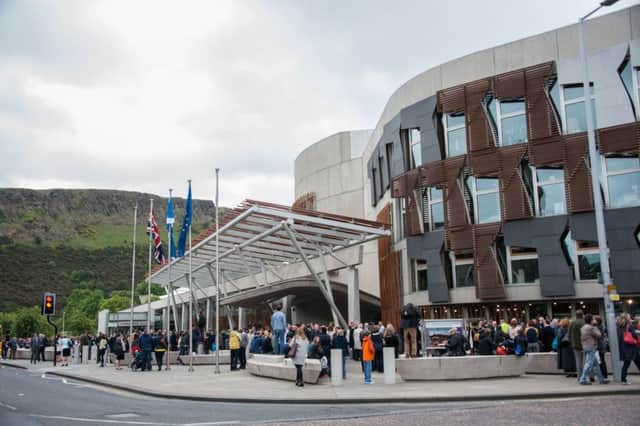Leader comment: Welfare system needs fixed, not debated


It went along with the National Health Service, which said that people would be given medical treatment regardless of their ability to pay. Now with the welfare system no-one would starve or freeze on the streets. We were a caring society and willing to put our money where our mouth was.
But as time went on it got more complicated: what was the minimum the state should give? Exactly who was a deserving recipient? If the state gave people enough money to live on, why should they find work? Maybe they did find work and kept the benefits too. Why should I work if I can get paid to do nothing? Have we created a society where generations fail because they have no incentive to succeed? And when employment rules were tightened up, suddenly disability became the distasteful battleground.
Advertisement
Hide AdAdvertisement
Hide AdThe welfare system became a political fight – and to an extent so it should, because at the heart of it is how much money we spend collectively on the items we collectively think it necessary to do so. Opinion, is, as they say, divided on the subject.
That is why Scotland’s mainstream religious leaders have called on politicians to reject the renewal of the Clyde-based nuclear weapons system, saying it was not just about the moral questions surrounding weapons of mass destruction but also the view that the billions of pounds could be better spent elsewhere.
The question of the moral difference between nuclear weapons and conventional weapons which when used in, say, the carpet bombing of civilians in cities can cause equally vast numbers of casualties, is a debate. The benefit to the nation from having the defence these weapons secure is a debate. And it is good we are having that debate, because it is evident there is a change in the public mood, and old certainties are being swept away.
In their Wealth Report 2016, Knight Frank say: “Ultimately, feelings of social, economic and political inequality can ferment revolution, as in the case of the Arab Spring. The electorates in Western economies have also been making their feelings known.”
And then we come across the findings of Citizens Advice Scotland, who warn that, here and now, hungry families are seeking help after being without food for several days, while others are unable to afford basics such as electricity or gas. The organisation warns that the state support network is failing vulnerable people.
Surely that is part of what people are railing against, some of the change people are demanding to see. Surely no-one wants to see a return to the bad old days – yet here is another indication the system is broken. That does not need a debate.